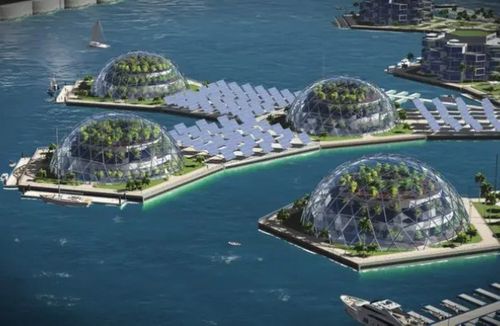Floating cities: Humanity's future or a billionaire's dumb dream?
Feb 03, 2023 · 2 mins read
0
Share

Seasteading: Creating permanent, autonomous dwellings in the sea. Conceived in the 19th century and popularized in the late 1990s, the idea of floating cities is polarizing. Is it a libertarian fever dream? An achievable utopia? Mere escapism? Read on:
Save
Share
A 1998 essay by Wayne Gramlich caught the attention of Patri Friedman. The two began working together and published their first book together in 2001, Seasteading: A Practical Guide To Homesteading The High Seas. Later, the duo foundedThe Seasteading Institute in 2008.
Save
Share
Peter Thiel, the co-founder of PayPal, funded the institute with $500000 in 2008. He writes: "From my vantage point, the technology involved is more tentative than the Internet butmuch more realistic than space travel."
Three promising aspects of seasteads:
Save
Share
A) Autonomy: This is one of the primary attractions. Seasteading will give people the power to “leave governance they don’t like and choose governance they do.” You want a socialist seastead? A libertarian seastead? A Muslim seastead? Name your price.
Save
Share
B ) Economic Opportunities: From harnessing the immense stores of energy and nutrients to serving the global demand for financial, medical, and human services, seasteading promises to give rise to many 21st-century fortunes. Seasteads can be the incubators for "aquapreneurs."
Save
Share
C) Rise in innovative technological progress. Peter Thiel: “The specific thing that I would hope would come out of it would be more scientific and technological progress that’s too heavily regulated by the heavy hand of our existing state.” Eurekas and bureaucrats aren't friends.
Save
Share
Even though they were all the rage once, a majority of attempts to make seasteads real failed. A small list: the 2008 San Francisco "Baystead" plan, the 2010 California Coast's "Clubstead" plan, the 2013 Floating Water Cities Project - none of these ever came close to fruition.
Save
Share
Problems: The engineering complications, the political problems, the technical and the legal challenges - there were many significant hurdles in the way. Thiel’s donations dried up, Friedman changed his ambitions. The Institute continued without them, headed by Joe Quirk.
Save
Share
Progress ▶️ Failure. In 2017 the Seasteading Institute signed a MOU with the government of French Polynesia to build the first seasteads in its territorial waters. The plan never worked out, “There wasn’t a perfect alignment of interests" said the country's minister.
Save
Share
Nonetheless, as of 2023, the institute is still functioning with over 8-10 active projects. Will Seasteads be able to break the traditional Nation-State system or will they be remembered as yet another failed utopian dream? Time will tell. Follow me for more!
Save
Share
0